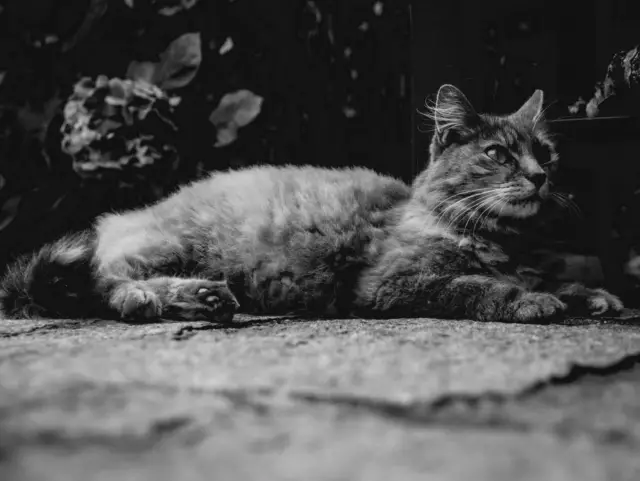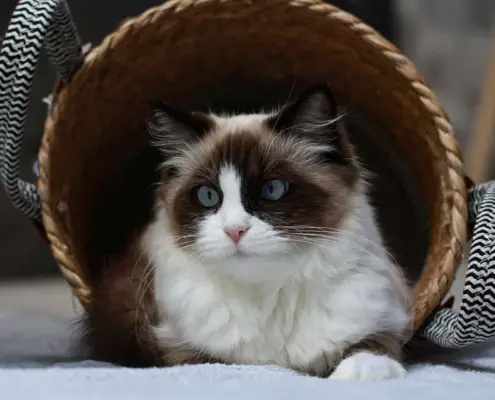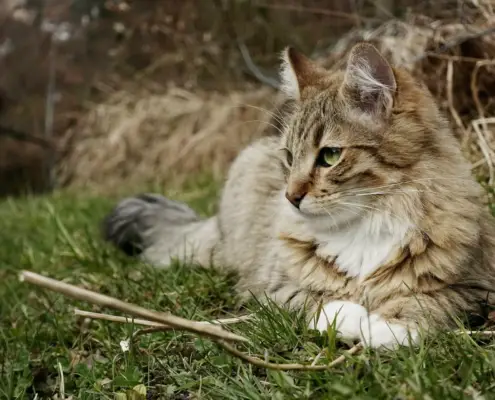
Cats have long captivated the hearts and minds of humans with their enigmatic behavior and selective nature. These graceful creatures are known for their independent spirit and unpredictable actions, leaving many pet owners puzzled and intrigued. In this article, we will delve into the mysterious world of cats, shedding light on the reasons behind their selective behavior and debunking common myths surrounding their enigmatic nature.
Understanding the selective behavior of cats
One of the most intriguing aspects of cats is their selective behavior. Unlike dogs, who are often characterized by their unconditional love and loyalty, cats tend to be more discerning in their affections. They choose when and where to bestow their attention, often leaving their owners wondering what they have done to deserve such treatment. However, there are several factors that contribute to a cat’s selective nature.
Factors that contribute to a cat’s selectiveness
A cat’s selectiveness can stem from a variety of factors, including their evolution as solitary hunters. Cats are natural predators and have retained many of their wild instincts, which can manifest in their behavior towards humans. Additionally, cats are highly sensitive animals, both physically and emotionally. They are attuned to their surroundings and can easily become overwhelmed by changes in their environment or routine. This sensitivity can contribute to their selective behavior, as they may withdraw or become aloof in response to stress or unfamiliar situations.
Common myths about selective cats debunked
There are several common misconceptions surrounding selective cats that need to be debunked. One of the most prevalent myths is that cats are aloof and uncaring. In reality, cats can form deep bonds with their owners and show affection in their own unique ways. They may rub against their owner’s legs, purr softly, or engage in playful behavior to express their love. Another myth is that selective cats are unfriendly or aggressive. While some cats may exhibit defensive behavior, it is often a response to fear or anxiety rather than inherent aggression. It’s important to remember that each cat is an individual with its own personality, and generalizations should be avoided.
The benefits of a cat’s selective nature
While a cat’s selective nature can sometimes be puzzling or even frustrating for their owners, it also has its benefits. Cats are independent animals that value their personal space and alone time. Their selectiveness allows them to maintain a sense of autonomy and control over their environment, which can contribute to their overall well-being. Additionally, a cat’s selective behavior can be seen as a sign of trust. When a cat chooses to interact with their owner or seek their attention, it is a testament to the bond they have formed and the level of trust they have developed.
How to navigate and work with a selective cat
Navigating the world of a selective cat requires patience, understanding, and a willingness to adapt. It’s important to respect a cat’s boundaries and not force interaction when they are not receptive. Instead, create a safe and comfortable environment where the cat can feel secure and in control. Providing plenty of hiding spots, vertical spaces, and enrichment activities can help alleviate stress and give the cat a sense of ownership over their surroundings. Additionally, establishing a routine and sticking to it can help alleviate anxiety and provide a sense of predictability for the cat.
Tips for bonding with a selective cat
Building a strong bond with a selective cat takes time and effort, but it is a rewarding experience. Start by observing the cat’s body language and respecting their personal space. Avoid sudden movements or loud noises that may startle them. Offer treats or play with interactive toys to engage the cat in a positive and non-threatening manner. Slowly introduce physical touch, starting with gentle strokes and gradually increasing the level of contact as the cat becomes more comfortable. Remember, trust is earned, and it may take weeks or even months for a selective cat to fully open up.
The importance of patience and understanding with selective cats
Patience and understanding are key when dealing with a selective cat. It’s important to remember that their behavior is not a reflection of your worth as an owner, but rather a result of their unique personality and past experiences. Avoid taking their selectiveness personally and focus on creating a nurturing and supportive environment. Celebrate small victories and progress, even if it may seem insignificant. With time and patience, a selective cat can learn to trust and form a deep bond with their owner.
Seeking professional help for dealing with a selective cat
In some cases, dealing with a selective cat may require professional help. A veterinarian or animal behaviorist can provide valuable insights and guidance tailored to your specific situation. They can help identify any underlying medical conditions that may be contributing to the cat’s behavior and suggest behavior modification techniques to address the selectiveness. Additionally, they can provide support and resources to help you navigate the challenges of living with a selective cat.
Embracing and appreciating the unique nature of cats
In conclusion, the mysterious world of cats and their selective nature is a fascinating subject that continues to captivate cat lovers around the world. While their enigmatic behavior may sometimes be perplexing, understanding the factors that contribute to a cat’s selectiveness and debunking common myths can help foster a deeper appreciation for their unique nature. By navigating and working with a selective cat with patience, understanding, and a willingness to adapt, you can build a strong bond and create a fulfilling relationship based on trust and mutual respect. So embrace the mystery and enjoy the journey of discovering the truth behind your cat’s selective nature.
If you enjoyed my article, I would appreciate you sharing it with your network.

Sima Ndlebe
Sima writes for CatBuzz. He is interested in Cats, Health and Fitness, and Entrepreneurship.
Published: 4 May 2024



